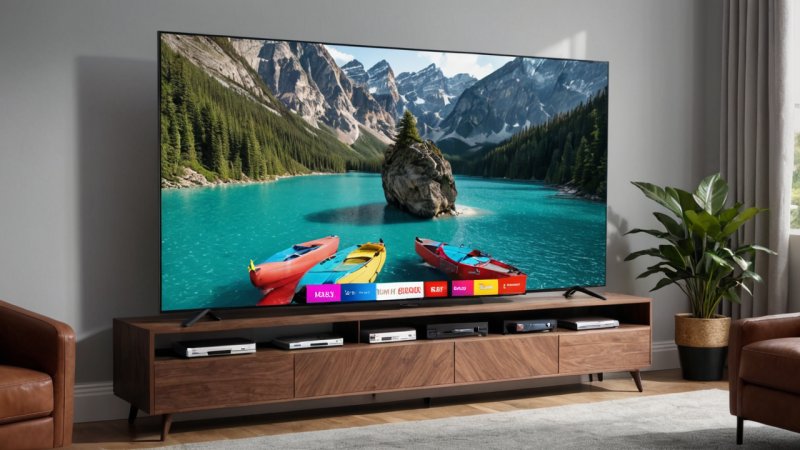1. Picture Quality
4K TVs offer stunning picture quality with a resolution of 3840 x 2160 pixels, providing four times the detail of Full HD. In contrast, 8K TVs boast a resolution of 7680 x 4320 pixels, which means they have four times the detail of 4K. This extra resolution is especially noticeable on larger screens, where pixel density is crucial.
2. Content Availability
Currently, most content is available in 4K, with streaming services like Netflix and Amazon Prime leading the charge. While 8K content is still scarce, some platforms are starting to offer it. However, for the average viewer, 4K remains the more practical choice.
3. Upscaling Technology
Many 8K TVs come equipped with advanced upscaling technology that enhances lower resolution content to near-8K quality. This means that even if you're watching 4K or lower content, the experience can be improved, making it a worthwhile investment for some.
4. Future-Proofing
8K TVs are often viewed as a way to future-proof your entertainment setup. As technology evolves and more 8K content becomes available, having an 8K TV may ensure you’re ready for the next generation of viewing experiences.
5. Price Point
The price difference between 4K and 8K TVs can be significant. 4K TVs are generally more affordable, making them a more accessible option for most consumers. If you want to enjoy high-definition viewing without breaking the bank, 4K may be the way to go.
6. Viewing Distance
The benefits of 8K resolution are most noticeable when sitting closer to the screen. If your viewing distance is standard (around 6-8 feet for a 55-65 inch TV), you may not be able to appreciate the difference between 4K and 8K, making 4K the more sensible choice for most setups.
7. HDR Support
Both 4K and 8K TVs can support High Dynamic Range (HDR) technology, which enhances color and contrast. However, it’s essential to check for specific HDR formats (like HDR10, Dolby Vision) when purchasing a TV, as these can significantly affect your viewing experience.
8. Gaming Compatibility
For gamers, 4K resolution is becoming the standard, with many modern consoles supporting it. While some consoles are starting to offer 8K gaming, the experience may not be fully optimized yet. If gaming is a priority, a solid 4K TV may provide the best experience right now.
9. Brand and Model Variability
Not all 8K TVs are created equal. Different brands offer varying levels of technology and picture quality. It’s crucial to research specific models and read reviews to find out which ones provide the best performance.
10. Energy Consumption
8K TVs may consume more energy compared to their 4K counterparts due to the increased number of pixels. If energy efficiency is a concern for you, it’s worth checking the energy ratings of each model.
In Summary: When choosing between 4K and 8K TVs, consider factors such as picture quality, content availability, upscaling technology, and your budget. While 8K offers remarkable resolution and future-proofing potential, 4K remains the more practical choice for most consumers today. Evaluate your viewing habits, distance, and specific needs to make an informed decision.






